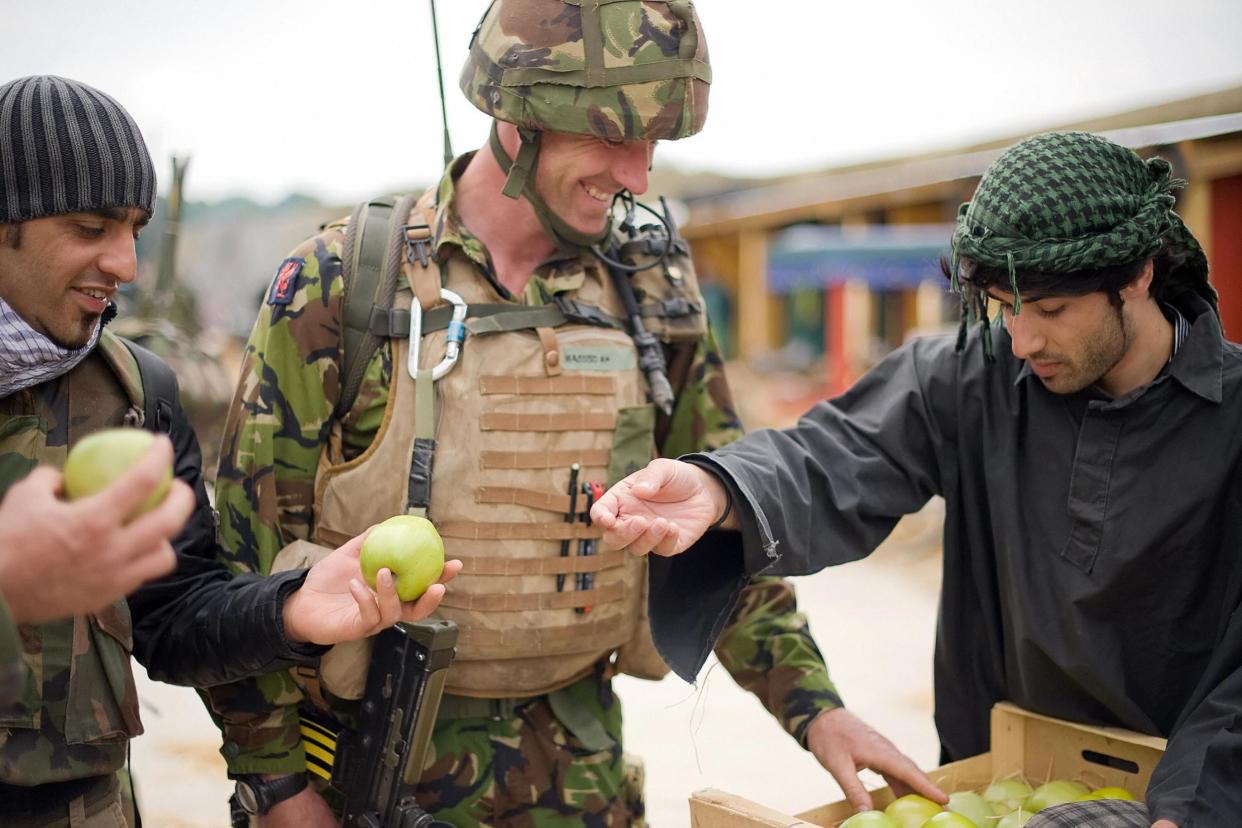The Reader: Our duty to help the brave interpreters of Afghanistan

In dealing with the Windrush generation and their children, the Home Office, in the words of Amber Rudd, lost sight of the individuals in its pursuit of a policy. A similar admission is in order for another group, our former interpreters in Afghanistan — some 2,000 or so — whose lives are regularly threatened and for whom the advice often offered is “to hide in plain sight”.
There is credible, independent evidence from the UN and others of the degree of threat they live under: many have been forced to leave their homes in the Afghan provinces; some have been attacked and murdered; others, clearly and reasonably desperate, have become “illegal” asylum-seekers. We have a debt of honour to these brave men, who shared our service personnel’s daily dangers and helped us to fight the Taliban.
They should not have to risk their lives with people-smugglers, and the Government should allow them to settle in this country and breathe free at last. I also call on the House of Commons Defence Committee to publish its report on the interpreters’ plight — they’ve been gathering evidence for more than a year now.
How many more interpreters have to die, flee their homes or attempt to claim asylum before the UK puts right this wrong too?
Simon Diggins
EDITOR'S REPLY
Dear Simon
THE treatment of interpreters working with British forces and government agencies in Iraq and Afghanistan has been uneven, to put it mildly. Where I agree with your letter is the sense of overall obligation to those who have done valuable and hazardous service.
It is not just a question of repaying a debt but helping to develop and educate these young people.
The narrow and legalistic ways that rights of residence have been operated for the interpreters runs against the ethos of the armed forces, which is based on trust, backing up those who have helped you and will help you in turn. Instead, our soldiers have had laws and regulations heaped upon them — including the so-called military covenant. This lays down how a society and government should behave towards those who regularly put their lives on the line.
That this has to be written down and spelled out by law suggests much is wrong in the body politic.
Robert Fox, Defence Editor
Bravo, Labour
After Tuesday’s debate in the Commons, it’s good to see Labour is taking accusations of anti-Semitism seriously [“Labour probes “100 members” over claims of anti-Semitism”, April 18]. I was moved by the performances of Luciana Berger and John Mann. These were passionate, principled speeches on a core socialist issue, which reminded me of the way Labour used to be.
Stan Labovitch
London can learn from Manhattan
YOUR article [“London’s soaring skyline”, April 18] makes reference to those concerned “that London’s skyline is under threat” from the new spate of tall tower buildings that have won planning permission.
Thankfully not everyone thinks in those terms, and especially not in New York. Where would that great city be today without the Manhattan skyline, one of the greatest man-made wonders of the age?
Tall buildings can bring jobs, recreation and wealth. Typical of the new genre is 22 Bishopsgate. When finished it will be the tallest building in the City and features more open space, an improved streetscape and wind protection for pedestrians.
Such structures are better designed than their historical counterparts and form welcome interventions in the urban landscape.
George Demetri

 Yahoo News
Yahoo News 
